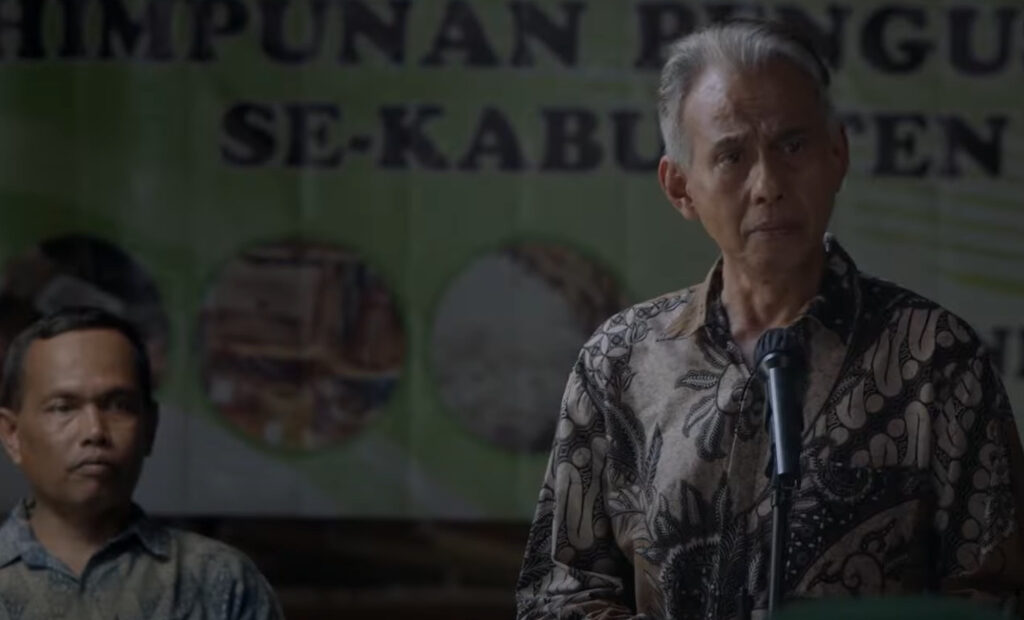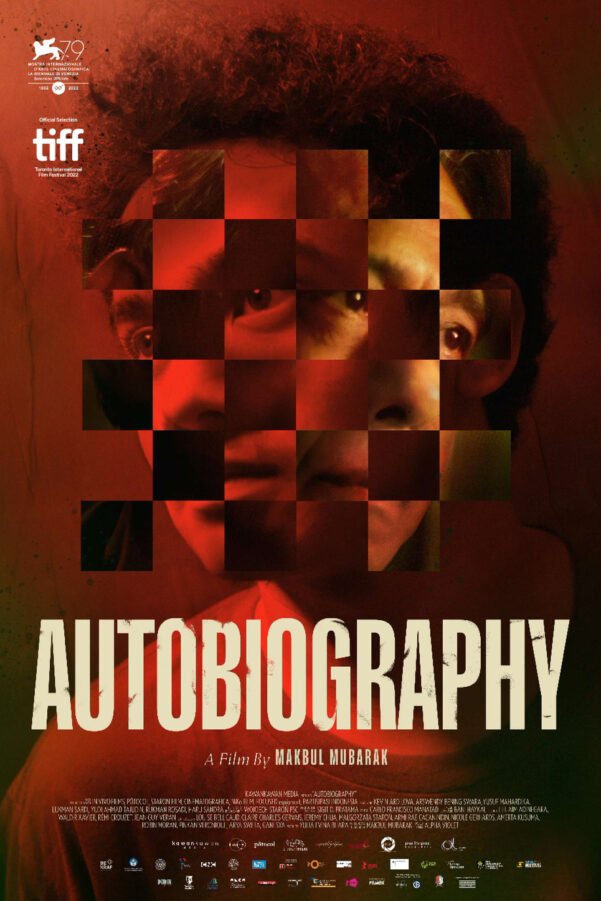Autobiography

An assured debut feature from Indonesian filmmaker Makbul Mubarak after a trio of acclaimed shorts, Autobiography is propelled by a simmering political and dramatic tension, introducing the director as a pointed voice with strong convictions on the condition of his home country and the world at large as it stampedes ever deeper into the hazy chasm of the 21st century.
Set against the backdrop of Indonesia’s reckoning with the legacy of its long and arduous military dictatorship, the film follows Rakib (Kevin Ardilova), a young man who works as a housekeeper in the mansion of the retired General Purna (Arswendy Bening Swara). When Purna returns home to begin his local mayoral campaign, Rakib is gradually integrated into its inner workings, initially being commissioned the innocuous task of plastering campaign posters across the town. When one of these posters is vandalised, however, Rakib is deployed to track down those responsible. Basking in the glow of the status and protection afforded to him by his newfound relationship, Rakib fulfils his task with glee, until his complicity in the general’s political violence crystalises in the wake of tragedy.
Information about the characters and Purna’s political agenda is imparted through organic exposition. We learn, during a town hall hustings, of Purna’s flagship policy: the construction of a hydropower plant to address the town’s unreliable supply of energy. The concerns of a family who refuse to give up their farm in order for its construction to proceed are ruthlessly batted away with arrogant disregard. We ascertain the disparate circumstances of Rakib’s family: his brother no longer lives in Indonesia, while Rakib seems hesitant when offered the opportunity to go abroad to work with him. His father, Amir, who also worked for the general, is serving a prison sentence for sabotaging the bulldozers deployed to make way for the plant. “It’s 2017, don’t worry about hierarchies”, the general wryly tells Amir during a brief visit to him in jail, the de facto absurdity of this statement silently acknowledged by both parties.
The tone deployed by Mubarak teases the sinister, predatory undertones of the film’s central relationship even before any explicitly criminal behaviour erupts, its unnerving pace combining with Bani Haykal’s atonal, scratchy score to build a political and social milieu which is off-kilter, seedy, ominous. The dark, under-exposed interior lighting favoured by cinematographer, Wojciech Staroń, falls into the aesthetic lineage of The Godfather, evoking the struggle between light and dark, loyalty and justice and fundamental good and evil which is at the forefront of Mubarak’s mind. The film’s thematic and tonal sensibilities are underpinned by the strength of the two central performances. Bening Swara commands the space and authority of every scene, while Ardilova succinctly captures his character’s gradual loss of agency.
The brooding tension of Autobiography simmers towards an ultimately understated, hauntingly subdued boiling point which is part coming-of-age epiphany, part revolutionary reckoning. This is a political fable which understands that the roots of power do not bombastically reveal themselves to us in a breakneck third act, but seethe under the surface of our everyday lives like a monster under the bed that never comes out.
Matthew McMillan
Autobiography does not have a UK release date yet.
Read more reviews from our Venice Film Festival 2022 coverage here.
For further information about the event visit the Venice Film Festival website here.
Watch the trailer for Autobiography here:


























Facebook
Twitter
Instagram
YouTube
RSS